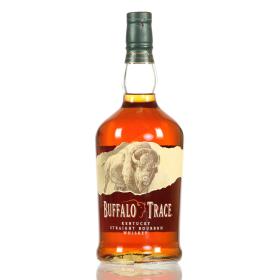Whisky is a traditional spirit with origins in Scotland and Ireland, made from grain, water and yeast. Its multi-stage production process - from malting and mashing to fermentation, distillation and maturation - gives it a unique flavour. Internationally, whisky must mature for at least three years in oak casks and contain 40% alcohol by volume. alcohol by volume. Different varieties such as Scotch, Irish whiskey and bourbon show how origin and grain characterise the flavour.
Whisky definition and basics!
Whisky originally comes from Scotland and Ireland and consists of just three ingredients: Grain, water and yeast!
According to international regulations, an alcoholic beverage may only be labelled as whisky if it fulfils the following criteria:
- Production: made exclusively from grain, water and yeast
- Maturation: at least 3 years in oak barrels
- Bottling: with a minimum alcohol content of 40% vol.
In the USA, a minimum storage period of two years is sufficient!
Whisky is an alcoholic spirit made from grain. It is created through a multi-stage process of fermentation, distillation and maturation, whereby the flavours are characterised by the respective production and storage.
Typical grain varieties are barley, corn, rye and wheat. The characteristic flavour develops primarily during storage in wooden barrels.
Whisky production and maturation
- Malting: The grain (usually barley) is soaked and allowed to germinate, which activates enzymes that convert starch into sugar. Drying (kilning) then stops the germination process.
- Mashing: The malted grain is crushed and mixed with warm water. This converts the starch into fermentable sugars, which serve as the basis for fermentation.
- Fermentation: The malted grain is mixed with water. Fermentation converts the natural sugars into alcohol.
- Distillation: The fermented mash is distilled in copper stills to concentrate the alcohol and remove unwanted substances.
- Maturation: The whisky is stored in wooden barrels for several years. During this time, it takes on flavours, colour and complexity.
Whisky is produced and matured in various production stages and in different production styles.
Whisky varieties
- Scotch: Produced in Scotland, usually from malted barley, with a variety of flavours depending on the region.
- Irish whiskey: Traditionally from Ireland; often triple-distilled, resulting in a smooth and mild flavour.
- Bourbon: An American whiskey that is mainly made from corn and has a sweet flavour.
- Other varieties: In addition to these classics, there are whiskies around the world, with Canadian and Japanese whiskies particularly noteworthy, each with their own production traditions and flavours.
Where does the word ‘Whisky’ come from?
The word "whisky" is derived from the Gaelic term uisge beatha, which literally means "water of life". Over time, this term was shortened through anglicisation and used in its current form. Interestingly, in the 19th century, whisky was referred to as "liquid bread" in some regions - an indication that it was seen as a nutritious treat.
Would you like to delve even deeper into the world of whisky? We'll take you to all the interesting whisky topics on our knowledge pages!



















To comment, you must be logged in